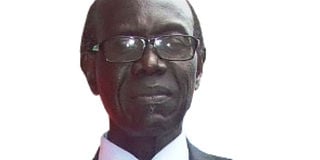Issues before 73rd session of UN General Assembly

Next Tuesday, the 73rd regular session of the United Nations General Assembly (UNGA 73) will open its three-month long session in the elegant plenary hall of UN headquarters.
For the next two weeks New York will resemble a beehive with distinguished delegates running up and down the corridors of UN headquarters.
UNGA 73 has a loaded 172-item agenda which covers almost every question under the sun, from outer space to deep sea mining to globalisation and interdependence.
Disarmament
On the political side, the most important issue is disarmament which was even more critical during the Cold War era when the possibility of a nuclear war between USA and USSR was real, not empty rhetoric.
I recall during the 1970s, veteran USSR foreign minister Andrei Gromyko would speak for two to three hours during the general debate, three quarters of his speech would be on disarmament, especially USSR’s commitment to disarm. He would accuse USA of intransigence and unwillingness to do likewise.
When the Cold War ended almost 30 years ago, there was talk of a peace dividend arising from the anticipated reduction of the military budgets of USA and NATO on the one hand and USSR plus its communist allies on the other.
Whatever happened to the peace dividend accruing as a result of the end of the Cold War? It was argued that the proceeds of the peace dividend would be channelled for the development of developing countries, like Uganda. This has not happened.
US president Donald Trump is instead routinely castigating America’s NATO allies for refusing to increase their defence budgets. Trump has warned that USA would no longer accept to carry NATO’s military burden alone.
The UN General Assembly’s agenda contains 17 items devoted to disarmament, namely, items 90 to 106. Item 99 titled, “General and complete disarmament” is divided into 41 sub-divisions. It’s mindboggling, to say the least.
The tragedy for the world is that, despite all the talk about disarmament at the UN, most countries are, on the contrary, increasing defence expenditure and this includes both developed and developing countries.
USA is the worst culprit. US military expenditure for the current fiscal year is a staggering $892 billion (Shs3.3 quadrillion)! USA spends more on the military than the rest of world put together, which begs some burning questions. Who for goodness sake is America’s enemy? Is America’s enemy on this planet or elsewhere in the universe?
With a mediocre, aggressive and reckless president, USA is today its own worst enemy, not China, Russia, Iran or North Korea. USA should heed a stern warning president Dwight Eisenhower made in the 1950s about what he called, “the military-industrial complex” which is pushing the US, especially the Republican Party, to squander vast resources on military hardware which the country does not need at all.
The military-industrial complex controls the Republican Party and the US government and Trump is their mouthpiece.
The UN should condemn the total waste of meagre economic and financial resources by member states on the military, especially developing countries like Uganda, Kenya and Tanzania.
As I have argued convincingly before, Uganda should follow the good example of Costa Rica and abolish a standing army.
Economic and social questions
For Uganda and African countries, the agenda items which matter most are those which deal with economic and financial questions which are considered in the second committee. I had the honour and privilege to represent Uganda on the 2nd committee for almost 15 years.
Agenda items 9 to 31 deal with promotion of sustained economic growth and sustainable development in accordance with relevant UN General Assembly resolutions.
Human rights questions are considered in the 3rd committee under agenda items 69 to 74 titled, ‘promotion of human rights’.
I would not be surprised if one or more delegations raise concern about the horrendous human rights situation in Burundi, South Sudan and Uganda under this cluster of items. We the peoples of the world deserve better.
Mr Acemah is a political scientist and retired career diplomat.
[email protected]




